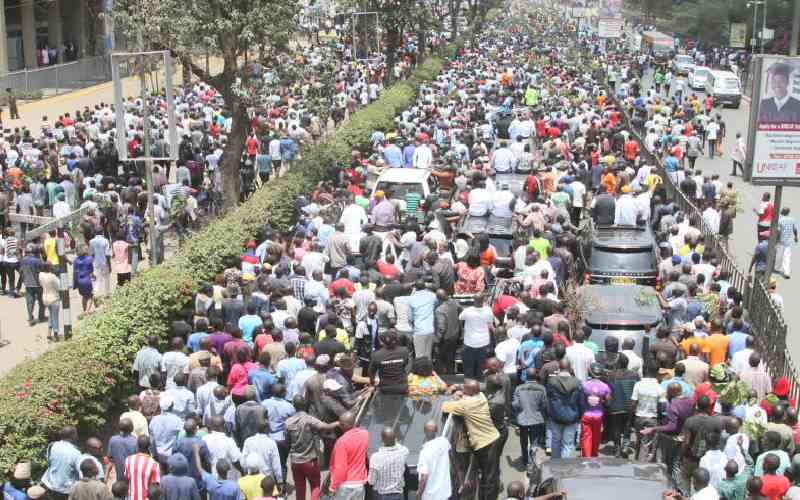×
The Standard e-Paper
Kenya’s Boldest Voice

He stepped on my thigh and pushed the muzzle of his rifle onto my chest. His armed colleague cocked his gun and stood at the door. "Kaa chini wee mjinga" he commanded pushing his gun deeper into my flesh. I sat still, fuming but helpless. The local chief produced five membership cards of the ruling party and ordered my father to part with Sh50, "or else".